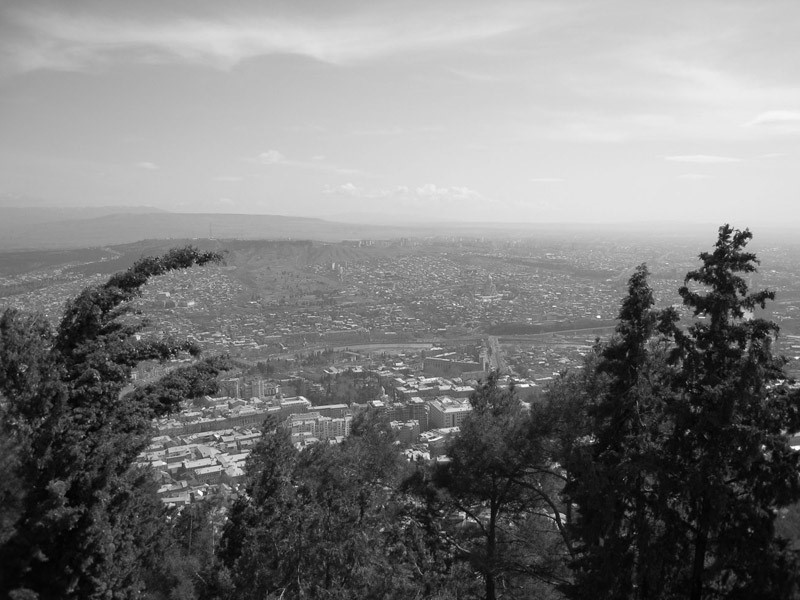Georgia’s rough-and-tumble capital city Tbilisi has been a haven for literati in exile for as long as there have been displaced writers to wax lyrical about the city’s charms: Alexander Pushkin, Mikhail Lermontov, Leo Tolstoy, Maxim Gorky – each has
Georgia’s rough-and-tumble capital city Tbilisi has been a haven for literati in exile for as long as there have been displaced writers to wax lyrical about the city’s charms: Alexander Pushkin, Mikhail Lermontov, Leo Tolstoy, Maxim Gorky – each has submitted to the lure of this 5th century city built atop a massive, sulphuric hot-water spring. French author Alexandre Dumas famously wrote of being danced upon by ‘silent Persians’ in one of Tbilisi’s many bathhouses. “He must have weighed a hundred and twenty pounds or more, but he seemed as light as a butterfly. A great sense of freedom and well-being permeated me.”
Indeed, freedom and well-being are fitting words with which to describe the current cultural climate in Tbilisi. Georgia is actively working toward recouping its traditional heritage after nearly 70 years under the suppressive umbrella of Soviet occupation. Meanwhile, an economic upswing has bred all sorts of new venues for young artists and designers – including the recent Georgia Fashion Week and a small flock of galleries and boutiques that have been cropping up around the city. Georgia Fashion Week, is now in its third cycle and rapidly picking up momentum as a showcase for Georgian talent including Goga Nikabadze and Marco Corso for A/W11.
A long weekend is barely enough time to visit Tbilisi’s requisite sites, starting in the bath district, where you can sample one of Dumas’ scrubdowns and a soak in the faintly putrid sulphur bath from which Tbilisi takes its name (‘tbili’ means ‘warm’ in Georgian). To find a bathhouse, one needs only to visit the bath district in downtown Tbilisi and choose from among the partially submerged buildings (recognisable for their domed brick ceilings which protrude from the ground) – though Herekle is the largest and most famous.
Saturday and Sunday mornings are ideal for an excursion to Tbilisi’s best open-air flea market, Dry Bridge market. Tucked beside a sprawling park where local artists sell paintings and tourist knickknacks, there is a chain link fence. Follow the tiny door in the fence leading down some cement steps, and the passage will give way to a modestly sized market packed with Georgian baubles. Proper antique vendors share space with Tbilisi locals who’ve come to sell off the contents of their closets and cupboards. Antique watches, weapons and cameras are plentiful, as is Soviet-era memorabilia.
In the evenings, forgo local nightclubs and find a traditional, family-style restaurant instead. Dinner in Georgia can be a three-hour affair, with plates upon plates of meats and cheeses piling up on the long, communal tables that are eventually abandoned as guests leave to join impromptu dance floors. Khachapuri (flat bread filled with melted cheese) is a staple of any Georgian table, as are Khinkali dumplings (warning: your dumpling-eating style will be judged. Pick it up by its ‘handle’, turn it upside down, bite, sip out the broth, then eat everything but the handle. Points deducted if broth drips down your arm), walnut paste wrapped in aubergine, and my personal favourite dish, ‘large bowl of melted cheese’. Metekhis Chrdili (29a, K. Tsamebili Street) is great for a Friday evening, though I recommend you visit Dom Khinkali off Rustaveli Square earlier in the day to brush up on your dumpling-eating skills.
When dinner is over and you’ve barely got legs to stand – from dancing and endless rounds of Georgian wine (Georgians pride themselves on being the oldest wine-producing country in the world, though they happily mix their reds with generous quantities of Red Bull) – it’s time, as Dumas wrote, to be folded up like a towel and put away in the closet. Or do as I did, and go directly to the airport for a blearily happy flight home.
Text by Julie Cirelli
